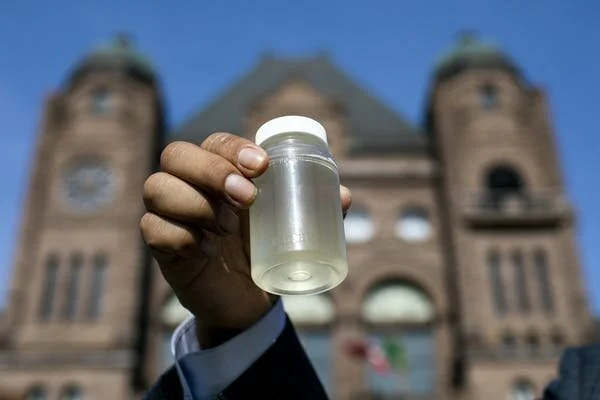The city says it’s taking action to address concerns about what may be in our water supply. An investigative piece by CTV’s W5 last month shed light on how fibres from aging asbestos-cement pipes could be entering municipal water supplies. In response to the piece, the city posted an information page about asbestos and why municipalities currently don’t test for it in the water.
Needles in sewage adding new hazards
The issue of non-flushables, such as wet wipes, plaguing wastewater authorities across Canada has added a new concern as Canada’s opioid crisis is resulting in more spent needles in sewer clogs. “We are running into more needles because of the opioid crisis and there are needles galore in the sewage system,” said Barry Orr, who for more than a decade has been Canada’s leading voice in the fight against non-flushables, a member of an international committee concerned about non-flushables and establishing standards for what is deemed flushable in sewer lines. He is currently the sewer outreach and control inspector for the London, Ont.
/R E P E A T -- OPSEU/SEFPO: Clean and safe drinking water is a human right/
On the eve of World Water Day, OPSEU/SEFPO President Warren (Smokey) Thomas and the OPSEU/SEFPO Indigenous Circle are challenging Ontario's political leaders to pass MPP Sol Mamakwa's Bill 286, the Inherent Right to Safe Drinking Water Act. Many First Nations, Inuit and Métis peoples in Ontario have been without clean water for years. Neskantaga First Nation in Northwestern Ontario had a boil water advisory issued on February 1, 1995. It's still in place today.
Canada sets the gold standard in corporate social responsibility
Performance in TSM is evaluated across a set of detailed environmental and social performance standards, including climate change, tailings management, water stewardship, Indigenous and community relationships, safety and health, biodiversity conservation, crisis management and preventing child and forced labour. TSM helps drive performance improvement where it counts — at the site level — and contributes to securing support for our activities from the communities where we operate.
Water crisis in First Nations communities runs deeper than long-term drinking water advisories
In October, more than 250 members of the Neskantaga First Nation were evacuated to Thunder Bay after an oily sheen was found on their reservoir. The discovery left the community, located in northern Ontario, without access to running water. The evacuation drew attention to the federal government’s 2015 commitment to end all on reserve long-term drinking water advisories (in place for more than one year) by March 31, 2021. Neskantaga has been living under a boil-water advisory for 26 years.






